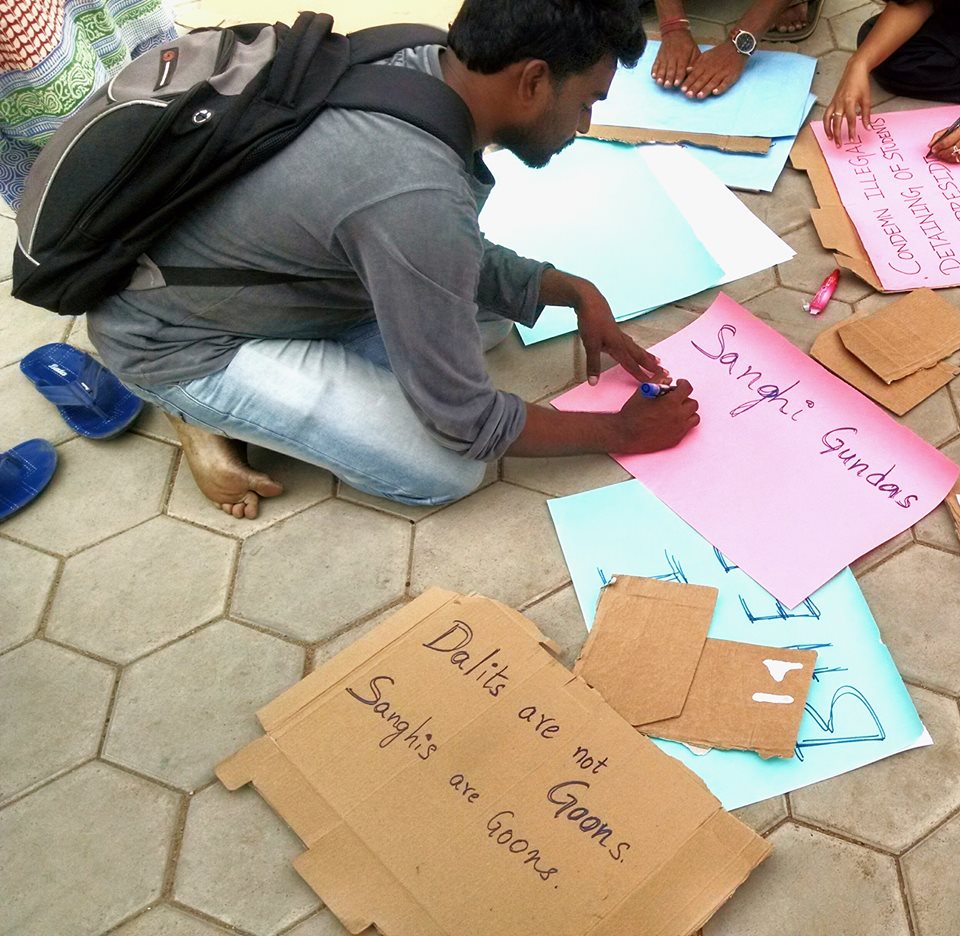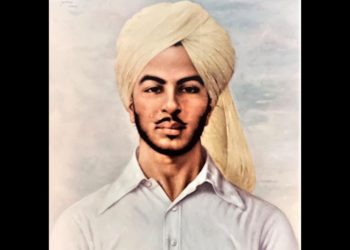Amnesty International

Image via JAC-UoH
Press release, March 25, 2016.
Amnesty International India condemns the police crackdown on peacefully protesting University of Hyderabad (UoH) students and faculty and demands their immediate release. There should be an independent investigation into allegations of excessive use of force by the police. On 22 March, the Telangana police assaulted protesting students in the UoH campus. Students were protesting against the return of the vice-chancellor of the university whom they hold responsible for the suicide of a Dalit Student, Rohith Vemula, in January 2016.
‘Violence against protesting students in a university cannot under any circumstance be justified. Allegations of sexual violence and threats by the police to women students must be investigated and those suspected of being responsible must be prosecuted,’ said Aakar Patel, Executive Director at Amnesty International India.
“Any protesters who can legitimately be charged for acts of violence or vandalism must be prosecuted and tried in proceedings which meet international fair trial standards.”
‘Male police brutally grabbed, molested, tossed and beat female students and faculties alike. Female faculties were grabbed by their hair and dragged into vans. Male students were swept inside the van and were beaten without mercy,’ said Vaikhari Aryat, a UoH student, in her Facebook post. Akshita Chitla, a student of UoH told Amnesty International India, ‘I was dragged outside from the VC office where I was protesting. Police told us not to behave like prostitutes and threatened us with rape. Most of my friends who were girls were slapped and kicked by male and female police officers.’ 25 students and two faculty members among the protesters have been arrested for allegedly vandalizing the vice-chancellor’s office and booked for rioting, criminal intimidation and damage to public property. If found guilty they could be imprisoned for up to 7 years. Udaya Bhanu, a UoH student and President of the Madiga Students Federation is one of many students admitted in hospital because of the police assault. He said there are injuries across his body including blood clot in his ear and that the doctors suspect internal bleeding. “Yesterday there was no food and water in the campus. So we decided to help the protesting students by arranging some food and water for them. While we were bringing the food packets the police spotted us and said we were encouraging the protesting students. They started beating us up and threatened us if we supported the protesting students,’ said Udaya Bhanu from the hospital. On Tuesday evening the university authorities closed the gates to the campus, preventing the protesters from accessing essential supplies. It was only on Thursday morning, in response to some students underlining human rights violations, that the university authorities restored such essential supplies. The situation in the campus remains tense.
‘Students have a right to protest. Denying students electricity, water and food merely because they are protesting is unacceptable,’ said Aakar Patel.
Caste-based discrimination on campus has been at the center of the protests in UoH. Students who belong to Dalit, Adivasi and other vulnerable communities have consistently spoken out against their marginalization on the campus, and claim that civil liberties are being eroded. An anti-discrimination committee meeting on the UoH campus that was scheduled on March 24 to look into wider representation of Dalit and Adivasi students in decision making bodies was never convened.
‘The university must act to ensure it remains an inclusive place for everyone; there must be no discrimination against those who belong to certain castes or profiling of students because they are politically active on this issue’, said Aakar Patel. The assault on students in campus and their arrest by the police violates many provisions of the Scheduled Caste and Scheduled Tribes (Prevention of Atrocities) Act, and the Indian Constitution. Article 19 of the Constitution guarantees the right to freedom of speech and expression and freedom of peaceful assembly. Arrests of peaceful protesters violate India’s obligations under international law, specifically the International Covenant on Civil and Political Rights (ICCPR), to respect and protect the right to freedom of expression and peaceful assembly, set out in Article 19 and Article 21 of that treaty. The arrest of the students and holding them for almost 24 hours without giving any information about their status is in breach of numerous international human rights standards including the UN Body of Principles for the Protection of All Persons under Any Form of Detention or Imprisonment
There is a long documented history of systematic and organized marginalization of Dalits within Indian society. The UoH campus has been at the center of an ongoing protest that began after the social boycott and suspension of five Dalit students in 2015 over allegations of violence against other students. These allegations were brought forward by the Akhil Bharatiya Vidyarti Parishad (ABVP) which is the student wing of the Bharatiya Janata Party (BJP), the ruling political party in India. None of those allegations of violence were proven and the students continue to face marginalization by the university authorities. In January 2016, one of the five students, a 26-year-old PhD scholar Rohith Vemula committed suicide. His suicide galvanized student protests across the country.




